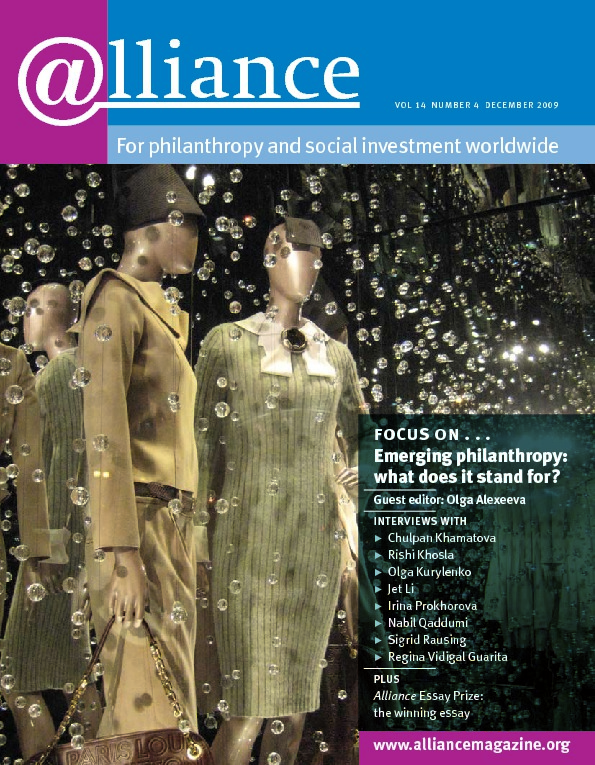Since the success of the Marshall Plan in reviving the economies of western Europe after the Second World War, it has been assumed that large-scale aid programmes will kickstart economic development in poor countries. For 40 years, aid was an important weapon of the Cold War, where allegiances could be bought and sold on the basis of aid packages. After the collapse of the Berlin Wall, the aid industry changed tack and used morality to market itself. Books like The End of Poverty by Jeffrey Sachs and the bully pulpits of rock stars hammered the message home. However, in recent times, a range of critics have appeared. George Ayittey and William Easterly were the vanguard, while Dambisa Moyo has taken the criticism to a much harsher level.
The Aid Trap by Glenn Hubbard and William Duggan of Columbia University articulates the criticism better than others. Does development aid ever work, they ask. Alas, if only. The road to hell, they say, is paved with the best intentions. Most poor countries still remain poor (or worse off) despite the aid dollars that have poured in over 50 years. According to them, the only thing that has ever worked effectively to reduce poverty is the growth of the business sector. The number of people living in absolute poverty dropped from 52 per cent in 1981 to 26 per cent in 2005, mostly driven by growth in India and China, which is just the latest example of the ability of the business sector to generate wealth on a large scale and reduce poverty.
But first, the authors provide a historical framework for capitalism. Commercial activity can be traced back to the ancient civilizations of Mesopotamia, India, Egypt and China. The modern variant, after its origins around the Mediterranean, spread across western Europe till the Netherlands emerged as the first country to experience widespread prosperity. Once independent from Spain, the Netherlands replaced the feudal system with a business-driven system, which catalysed strong economic growth. Dutch business practices were carried over to England when William of Orange ascended the throne.
So, if commerce demonstrably created wealth and widespread prosperity in western Europe (and later in America and Japan), why should it be any different in developing countries? Why are non-business actors (like NGOs) considered legitimate agents of economic development? Clearly, any developing country that has more NGOs than businesses will not get very far in creating wealth. And yet this is exactly the sort of approach that finds widespread currency among western governments, multilaterals, etc. What can be done to change the status quo and make aid more effective?
The authors suggest that we revisit the Marshall Plan. It has been forgotten that this was not really a conventional aid programme but a mechanism to revive business in western Europe. The surpluses generated were used by governments to fund infrastructure. So, why not create a similar mechanism for aid to developing countries today? Why not funnel aid dollars to fund businesses in countries that undertake to improve their business climate, with the surpluses used to fund more businesses and business infrastructure? The taxes levied on increased business activity pay for public services and social safety nets for the vulnerable. In the process, we recognize that only the business sector can ensure prosperity, and subsequent redistribution of wealth.
The devil obviously lies in the details. Unlike the original version, a new Marshall Plan will need an unprecedented level of international cooperation and coordination. The Second World War primarily destroyed physical infrastructure, not human infrastructure, so pouring money into promoting business worked as the policy reforms required were macroeconomic. In developing countries, the reforms required are fundamental and the lack of human infrastructure is a hard problem to tackle, especially in the short term. The other problem with many developing countries is that they are led by kleptocratic politicians, and not even this version of the Marshall Plan can work in such conditions. Ironically, many of the kleptocrats are kept in power by economic aid, so the incentives for governments to sign on and implement basic policy changes need to be strong.
While recognizing these objections, I still think The Aid Trap does a good job of both highlighting problems with the current aid structure and prescribing solutions, hard as they may seem to execute. My hope is that this book will at least provide additional points of reference for future aid policies.
Reuben Abraham is a professor and executive director of the Centre for Emerging Markets and Solutions at the Indian School of Business, Hyderabad. Email reuben_abraham@isb.edu
The Aid Trap: Hard truths about ending poverty
R Glenn Hubbard and William Duggan Columbia Business School Publishing $22.95/£15.95
ISBN 9780231145624
To order
http://www.bn.com or http://www.aidtrap.com



Comments (0)